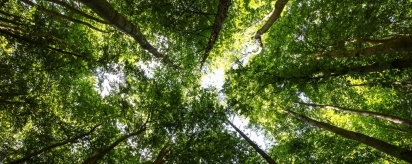"If the 20th century was the century of human rights, the 21st must be the century of the rights of nature".

Biomimetics (bio=life, mimetics=imitation) as a techno-science is in full development. Aristotle and Plato already spoke of biomimetic approaches and Leonardo Da Vinci designed flying devices imitating the flight of birds. Now the discipline is experiencing a "new dawn" in how to translate its philosophy into praxis. Transferring to artificial intelligence how to learn that information. It is a techno-science under construction. It's like a child learning to run. "We have to do it soon because of the environmental problems we have. In the words of Hernando Bernal "our civilization crisis is forcing us to look back to nature. "As head of Biomimetic Science Institute and of the UPV/EHU's Amassunu Association he gave the example of the students of the master's degree in entrepreneurship. These students have applied biomimetics to a sample of the soil mantle of a forest to achieve bio-fertilizers from the microorganisms found, in short, copying from nature to improve food production. "If the system is eco-healthy, it indirectly improves human health. Production and consumption for human health".
Transferring natural technology to human technology. It is an urgent process. Its translation to real life has quite advanced examples in Germany, Sweden, Korea, or some very advanced research institutes in the United States. In Spain it is still in its infancy. "Research is strategic if we want a society and economy of growth". The most important research institute in Spain (Biomimetics Sciencies Institutte, BSI for short) is in Barcelona. Its director Carmen SanFrancisco also participated in the UPV/EHU Summer Course. "It is actually a foundation and according to the work team we have three very active lines of research. Biotech, related to health, a second line dedicated to architecture and engineering and a third one related to marine sciences. "It's an emerging science, but we're not really discovering anything but rather looking again at things that we let pass us by. We were looking at nature as a resource, but for no other purpose". There has been a fundamental change of vision in the wake of climate change. It is no longer individuals or organizations that have started to take small circular economy steps, but rather a planetary awareness. "We have gone from being disseminators to being awareness-raisers and facilitators of solutions because climate change has solutions from the moment we are aware of its seriousness. "We may be teenagers in terms of reusing nature, but we are reawakening awareness at different stages. From some social strata, to companies, to governments. This is how the big bet of the Green Deal can be understood. Biomimetics are not a resource but an instrument".
Nature, with its 3.8 billion years of evolution, is terribly efficient. We, on the contrary, are generating enormous and immeasurable impacts with the abuse of materials that we believe to be inexhaustible and using production methods based on fossil fuels that have led us to the current climate crisis. Hernando Bernal said that "Nature has already demonstrated its entire process and capacity for efficiency. From our prism we want to transfer those principles of nature to the human economy".
Bioinspiration acts on both materials and processes. The Institute directed by Carmen SanFrancisco collaborates with airport projects that seek natural and sustainable reference. They work with engineering of all kinds and materials, such as new asphalts with more drainage capacity. We talk about going back to linen, cotton or hemp, but we also talk about using fabrics with a production process imitating nature, like the ones imitating shark scales used in the swimsuits of the last Olympic Games. "It was so efficient that they were banned because of the clear advantage for swimmers who had it. It's not about new fabrics but about new ways of weaving them. There are many biomaterials and many ways of working them".
Hernando Bernal explained the pioneering project being carried out by a group of researchers of the UPV/EHU on the hydrodynamics of sharks to apply it to ships and airplanes because, among other things, it would mean a very significant reduction in the fossil energy they use. Biomimicry represents a paradigm shift in which the sciences of an engineer, a mathematician and a philosopher converge. For Carmen SanFrancisco, biomimetics is an earlier stage of the circular economy because the latter is based on recycling and the former on the idea of not generating waste. Not generating recyclable waste.
Hernando Bernal clarified: "In nature there is no waste but nutrients". Sustainability entails a circularity in production systems and an awareness of responsible consumption. "Going towards an eco-civilization, moving from anthropocentrism to a bio-filia. From being the center of everything to being just another species in the ecosystem. To recognize that other species have the right to live in nature. If the 20th century was the century of human rights, the 21st must be the century of the rights of nature".
The United Nations has created a "harmony with nature" program in which different thinkers participate to treat nature as a subject of rights because nature also has its limits.

